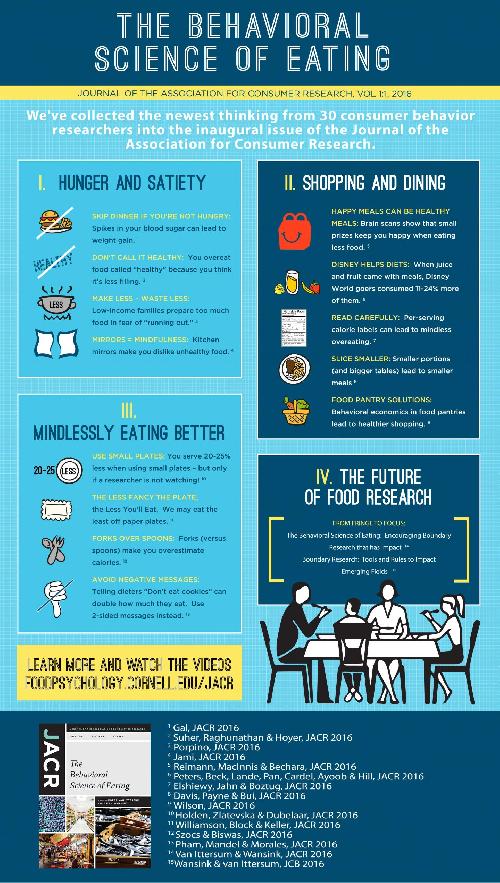Have you ever been to the supermarket and chosen foods based on nutrition labels? Have you ever assumed a fat-laden, high-calorie coffee drink must be healthier because a barista claims the milk does not contain something science-sounding like rBST?
Labels were once used to inform. The government mandated accuracy beginning in 1938 to make sure people were getting what they thought they were buying. A decade ago a food maker was penalized for selling cheese that was fake cheese but today a vegan company wants to sell mayonnaise that isn't mayonnaise, and various food activists want mandatory labels on products they compete against.
Even nutrition labels have become marketing gimmicks, they can differ substantially based on the recommended serving size, with undesired consequences for your purchase behavior, finds a paper in the Journal of the Association for Consumer Research.
For some, smaller recommended serving sizes on nutrition labels can lead them to buy more than they need.
Marketing experts from Germany found that shoppers bought more yogurt when the recommended serving size was smaller. In their study, the researchers analyzed millions of food purchases in European supermarkets before and after the introduction of a front-of-pack nutrition label. The data covered two years and 61 products from a healthy (yogurt) and unhealthy (cookies) category.
"Smaller recommended serving sizes will let all nutrition values on the label appear smaller too, independent of the product's actual nutritional composition" says lead author Dr. Ossama Elshiewy from the University of Goettingen. Shoppers, who read nutrition labels, tend to ignore the smaller recommended serving size and think that these products are healthier than others. "The problem is that people are comparing calorie information that is not comparable," Dr. Elshiewy adds.
Co-author Dr. Steffen Jahn, also from the University of Goettingen, suggests to always check the recommended serving size when reading nutrition labels. "This will prevent you from underestimating nutrition amounts and will make your choices healthier."





Comments